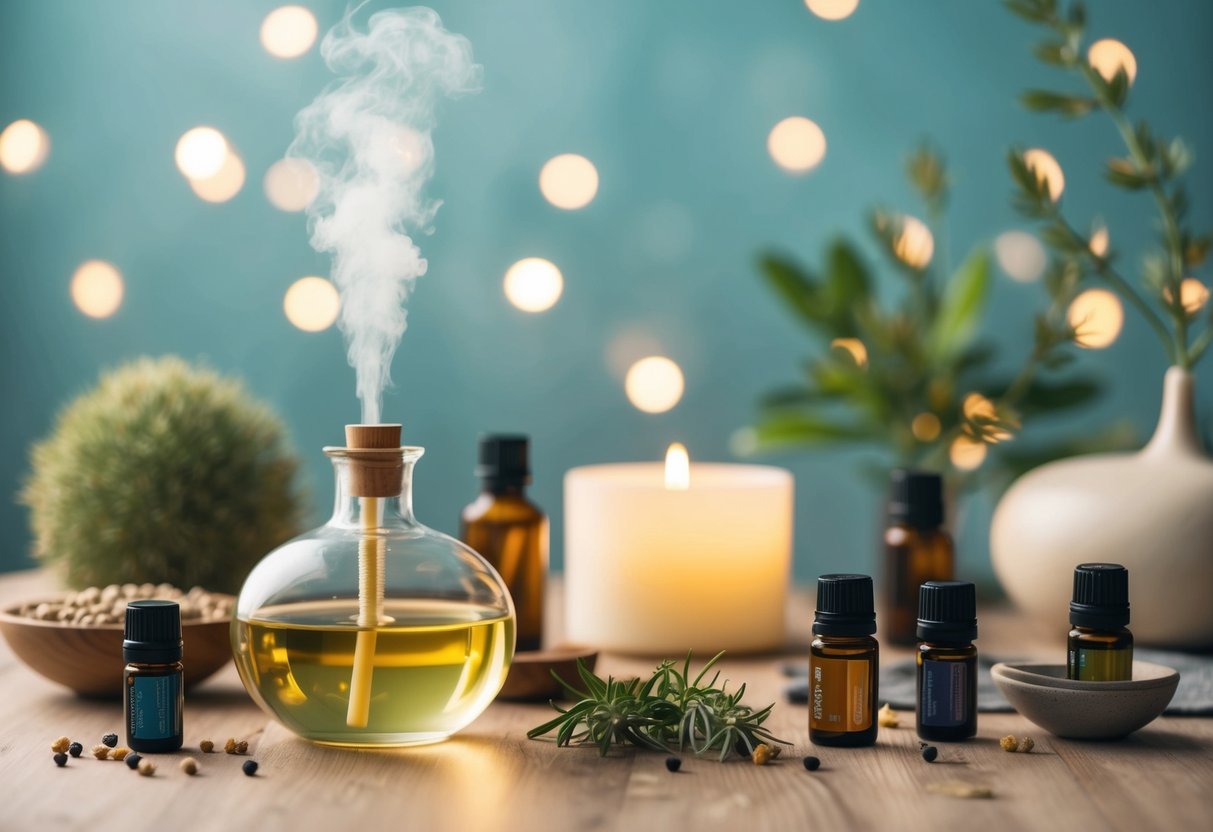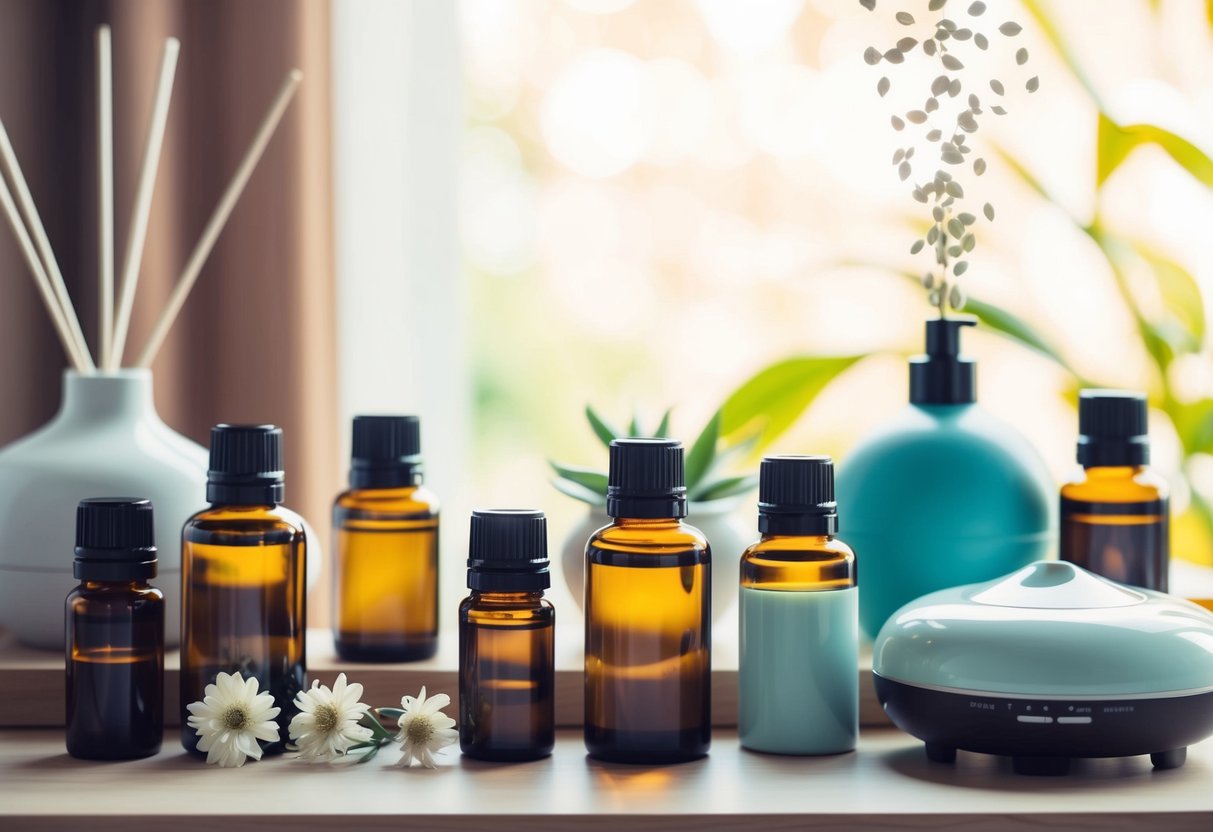Essential Oils for Mindful Living: Aromatic Practices for Wellness
Therapeutic Properties of Essential Oils

Essential oils offer various therapeutic properties, ranging from reducing inflammation and fighting microbes to enhancing mental clarity and promoting tranquility. These benefits make essential oils a valuable component in promoting overall wellness.
Anti-inflammatory and Antimicrobial Benefits
Essential oils like eucalyptus and tea tree are known for their anti-inflammatory properties. Eucalyptus oil, for instance, can help soothe irritated skin and promote respiratory health. These oils work by interacting with the body’s natural healing processes, offering relief from inflammation.
Additionally, several essential oils possess antimicrobial properties. Tea tree oil, often utilized for its powerful antimicrobial effects, helps combat bacteria and fungi. Such properties make it a popular choice for natural skin care solutions aimed at addressing minor cuts and infections.
Promoting Mental Clarity and Tranquility
Certain essential oils can promote mental clarity and tranquility, offering a sense of calm and focus. Lavender oil is commonly used to promote relaxation and reduce stress, thanks to its calming effects on the nervous system.
Peppermint oil is another option, often used to enhance concentration and alertness. The invigorating aroma of peppermint stimulates the mind, supporting mental performance and clarity. Essential oils, with their unique aromatic properties, play a role in creating a balanced daily routine.
The Science of Relaxation with Essential Oils

Essential oils have become popular for their potential to promote relaxation and reduce stress. By engaging the olfactory system, these natural extracts might support mental well-being and create a sense of calm.
Calming Effects and Stress Reduction
The aromatic compounds in essential oils can influence the nervous system, potentially leading to reduced feelings of stress. When inhaled, the molecules interact with the limbic system, an area of the brain involved in regulating emotions. This interaction can foster relaxation and decrease tension by modulating stress-related hormones.
Lavender is one of the most researched essential oils for its calming properties. Studies suggest lavender may lower anxiety levels and improve sleep quality. Similarly, chamomile and bergamot are also noted for their soothing effects. By incorporating these oils into daily routines, individuals might find relief from stress and enhance their mindfulness practices.
Essential Oils for Physical Health
Essential oils can play a significant role in enhancing physical well-being. They offer benefits that extend from stress alleviation to serving as natural solutions in skincare and hair care routines.
Alleviating Stress and Its Physical Impacts
Stress negatively impacts physical health, often manifesting as headaches, muscle tension, or fatigue. Essential oils like lavender and chamomile are known for their calming properties. They can be used in diffusers or added to bathwater to help soothe tension.
Eucalyptus and peppermint oils also aid in relaxation while improving respiratory function. By reducing stress, these oils contribute to better immune function and increased energy levels. They support physical wellness by promoting a state of calm that allows the body to recover and rejuvenate effectively.



